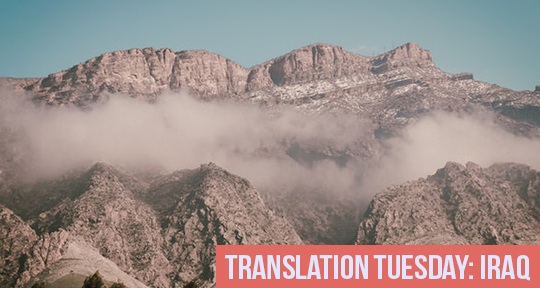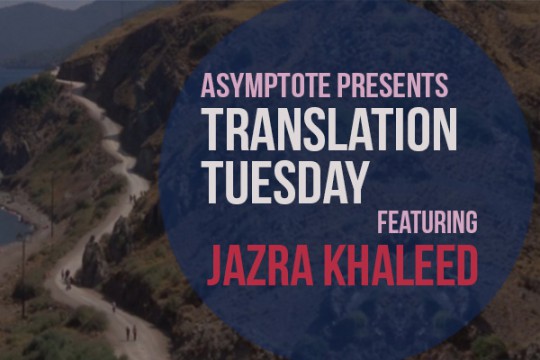This Translation Tuesday, Muntather Alsawad and Jeffrey Clapp team up to translate a poem by the Iraqi poet Rolla Barraq. Within the poem’s lilting anaphora and its prayer-like solemnity, the speaker beholds an Iraq marked by alternating scenes of hope and hardship; a mise en scene that structures, one may surmise, a young person’s selfhood. As “the track of tanks on the grass” continue to resonate with ongoing world events today, let Rolla Barraq’s words remind us of how words can be one way we remember and recite for our time.
Identity
From the smile of a child begging at the traffic lights on the hottest day of July
From the rough hand of a porter tired of dreaming
From a woman’s forehead burned by the oven of absence
From the blood that flowed until it became water for the rebellious
From the lover whose soothing voice did not soften his farewell
From a roof cracked by an orphan
From the tears of the homeless, measuring the distance with insults
From old friends who meet along the roads by chance alone
From the slums of death, sidewalks, homes and people
From the tales of a city filled with drunkards, salt
and women confiding in bits of overheard conversation
From the windows of narrow alleys and their faint noises at night
From the track of tanks on the grass
From the image of God scattered among the victims
From a palm tree still bowing in the shade of the watchers
From a journey between the reeds of the marshes and the gaps between
strangers
From the singing of a loyalist, about the boy who saw nothing
From the sadness of the white mountains, and the rock of their dark heart
From the clouds piled up in the eyes of mothers
From a flame that slept in the belly of the whale—
You all came to me in Iraq, and I fell in love with you. READ MORE…



